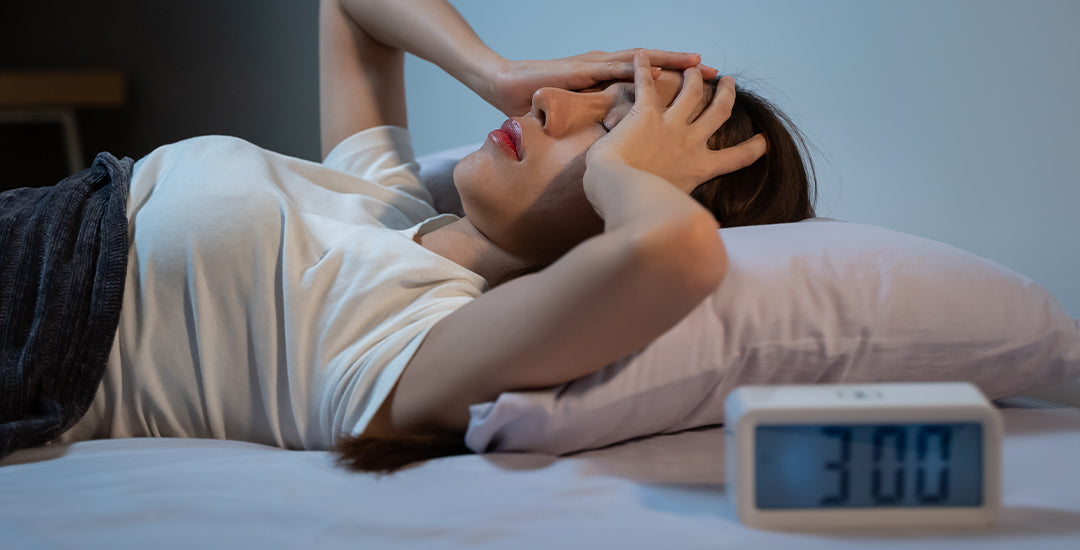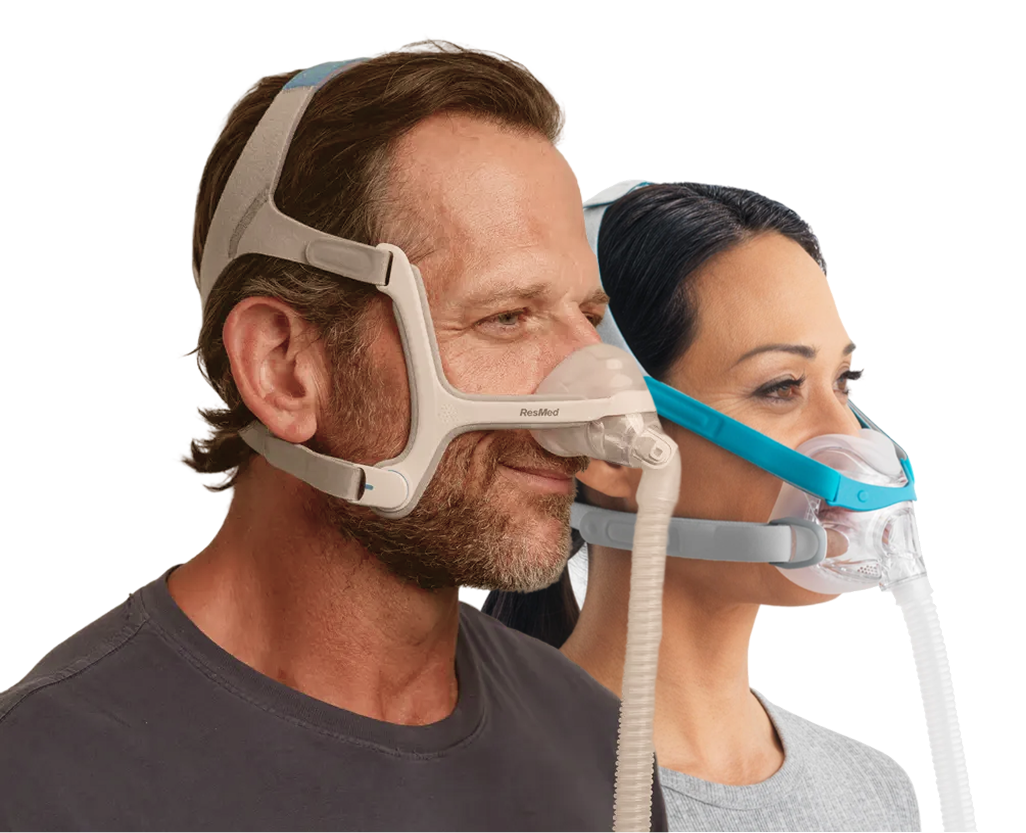What is insomnia sleep disorder? It's a sleep disorder where falling asleep, staying asleep, or waking too early becomes a struggle for many. Insomnia, a widespread sleep disorder, disrupts the restorative benefits of sleep and interferes with daily life. It can lead to fatigue, irritability, and trouble concentrating, ultimately affecting your overall well-being. Gaining a clear understanding of insomnia and its effects on the body is the first step toward finding solutions and enhancing your quality of life. Explore more about it in this article from CPAP Discount Warehouse.
What is insomnia? Who can have insomnia?
Insomnia is a common sleep disorder that makes it challenging to fall asleep, stay asleep, or return to sleep after waking up too early. It can leave you feeling fatigued despite getting some rest. This condition can drain your energy, affect your mood, and negatively impact your health, work performance, and overall quality of life.
There are two primary types of insomnia:
Acute Insomnia: Short-term sleep problems often triggered by stress, changes in routine, or anxiety. This type typically lasts a few days to a few weeks.
Chronic Insomnia: Long-term sleep difficulties that occur at least three times a week for three months or more. Chronic insomnia is often linked to underlying health conditions, lifestyle habits, or psychological issues.
Who can have insomnia? Insomnia can affect anyone, regardless of age, gender, or lifestyle. Older adults, women, people under high stress, and others may find themselves battling sleepless nights due to insomnia, individuals with mental health disorders, and people with irregular sleep schedules are more susceptible.

>>>> Is Paradoxical Insomnia Dangerous? Risks and Treatments
Insomnia symptoms
Insomnia is characterized by specific symptoms that manifest both during periods of sleeplessness and throughout the day, making it a functional disorder. These symptoms include:
-
Difficulty falling or staying asleep.
-
Frequent night awakenings.
-
Waking too early.
-
Not feeling well-rested.
-
Depression, headache, or irritability.
-
Difficulty with focus and memory.
-
Mood changes and irritability.
If you notice a consistent pattern of symptoms persisting over several weeks or find they are beginning to disrupt your daily activities and overall well-being, it may be time to consult a healthcare professional.
Following questions might help identify signs of insomnia:
-
Do you frequently struggle to fall asleep, even when you're tired?
-
Do you wake up multiple times during the night?
-
Do you wake up earlier than planned and find it difficult to fall back asleep?
-
Do you feel unrefreshed even after a full night's sleep?
-
Do you experience daytime fatigue, irritability, or trouble concentrating?
-
Have these problems lasted for more than three weeks?
Insomnia Causes
Insomnia can arise from various factors, ranging from psychological challenges to lifestyle habits. Identifying these causes is essential for determining effective treatment strategies. Key contributors include:
-
Stress and Anxiety: Worries about work, finances, or daily life can make it difficult to relax and fall asleep, leading to restless nights filled with overthinking. Even minor concerns can escalate, causing chronic sleep disturbances.
-
Irregular Sleep Patterns: Maintaining a consistent sleep schedule is vital for regulating the body's internal clock, or circadian rhythm. Frequent changes in bedtime and wake-up times due to shift work, travel across time zones, or inconsistent habits can disrupt this rhythm, contributing to insomnia.
-
Medical Conditions: Health issues can hinder restful sleep. Conditions such as arthritis and fibromyalgia may cause discomfort, making it hard to find a comfortable position. Respiratory problems like asthma and allergies can interfere with breathing, while gastrointestinal issues such as acid reflux or heartburn can cause discomfort that disrupts sleep.
-
Mental Health Disorders: Sleep problems often accompany mental health conditions like depression, anxiety, and post-traumatic stress disorder (PTSD). Depression may lead to early morning awakenings, anxiety can result in racing thoughts that delay sleep, and PTSD can cause nightmares or flashbacks that disrupt rest.
-
Use of Stimulants: Substances like caffeine, nicotine, and alcohol can interfere with sleep. Caffeine and nicotine increase alertness, especially when consumed close to bedtime. While alcohol may initially induce drowsiness, it disrupts deeper sleep stages, leading to fragmented and unsatisfying rest. Excessive use of these substances can exacerbate insomnia over time.

Insomnia Treatments & Diagnosis
How is insomnia diagnosed? Healthcare providers use several approaches to diagnose insomnia, including, Sleep History, Sleep Diary, personal circumstances, and more. They might also suggest specific tests to eliminate other potential conditions that could be causing or contributing to the insomnia.
There are no tests that can directly diagnose insomnia. Instead, tests help rule out other diseases with symptoms similar to insomnia. The most likely tests are:
+ Tests for sleep apnea, which include a Sleep Study in a sleep laboratory (polysomnography) or the use of a device to study sleep apnea at home.
+ Multiple sleep latency test (MSLT).
+ Attigraphy.
Depending on your symptoms and other factors, other tests may also be possible. Your doctor will be able to advise you on the best tests to take.
>>>> How to test for Insomnia at home?
Management and Treatment
Insomnia treatment often involves a combination of improving sleep habits, behaviour therapy, and identifying and treating underlying causes if necessary.
Light therapy and Cognitive behavioral therapy
Light therapy, also called phototherapy, can be a good treatment for some types of insomnia. It works by using light to help regulate the body's clock, which is sometimes out of sync and causes sleep issues.
During a light therapy session, your eyes' retinal cells react to the light from the light therapy box. This affects certain chemicals in your brain. These chemicals are melatonin and serotonin. They help keep your body's clock in sync. The light you see affects your brain, making you feel more awake and happier.
CBT-I is a type of therapy that looks at how thoughts, feelings, and behaviors are related to the symptoms of insomnia.
We examine and test our thoughts and feelings about sleep to see if they are accurate. We also examine our behaviors to see if they help us sleep. The provider will explain or rephrase any wrong ideas or problems in a way that helps the patient sleep better. The treatment usually takes six to eight sessions.
Improved sleep habits
If you're having trouble sleeping, you can improve your sleep habits. This means having a regular sleep schedule, creating a relaxing bedtime routine, and making sure your bedroom is a good place to sleep. You should also make lifestyle changes, such as not drinking too much caffeine or alcohol and exercising regularly.

Medications
If you've tried other insomnia treatments and they haven't worked, your doctor might prescribe medicine. Sleeping tablets can be useful for a short time, but they don't work as well if you take them too often. Using medicine for a long time can also cause addiction and side effects.
If you have trouble sleeping regularly, talk to your doctor about taking a medicine that helps you sleep at night. These include temazepam, zopiclone, and zolpidem.
Antihistamines are also used to treat allergies. However, those with sedating side effects are not recommended for use as sleeping pills.
You could try taking a low dose of a sedating antidepressant like trazodone or mirtazapine (Remeron) before bed.
By combining these strategies, many individuals can effectively manage insomnia and achieve restful sleep. If self-help methods don’t work, consider consulting a healthcare provider for tailored solutions. For expert assistance, contact CLM Sleep Clinic and begin your journey to better sleep today.
Sleep Apnea And Insomnia: Misdiagnosis and Differences
FAQs
How to cure insomnia in 12 minutes?
The 12-minute insomnia cure involves three main techniques: There are three parts to the exercise: mindful breathing, progressive muscle relaxation, and visualization. Each part takes approximately four minutes.
Is insomnia dangerous?
Chronic insomnia is disruptive. While it usually isn't dangerous, it can still have a negative effect on your life. If you have any symptoms of sleep deprivation, it's a good idea to talk to a healthcare provider.
What is the main reason for insomnia?
Some common causes of long-term insomnia are: Stress. Problems at work, school, or with your health, money, or family can make it hard to sleep at night. Stressful things that can happen in life, like the death or illness of a loved one, divorce, or losing a job, can also cause insomnia.
Conclusion
What is insomnia sleep disorder? Insomnia can affect your health and life if untreated. Recognizing symptoms, identifying causes, and exploring treatments are vital for better sleep. If issues persist, consult a healthcare provider. For affordable, high-quality CPAP machines and accessories, CPAP Discount offers great options. Take charge of your sleep health today!






